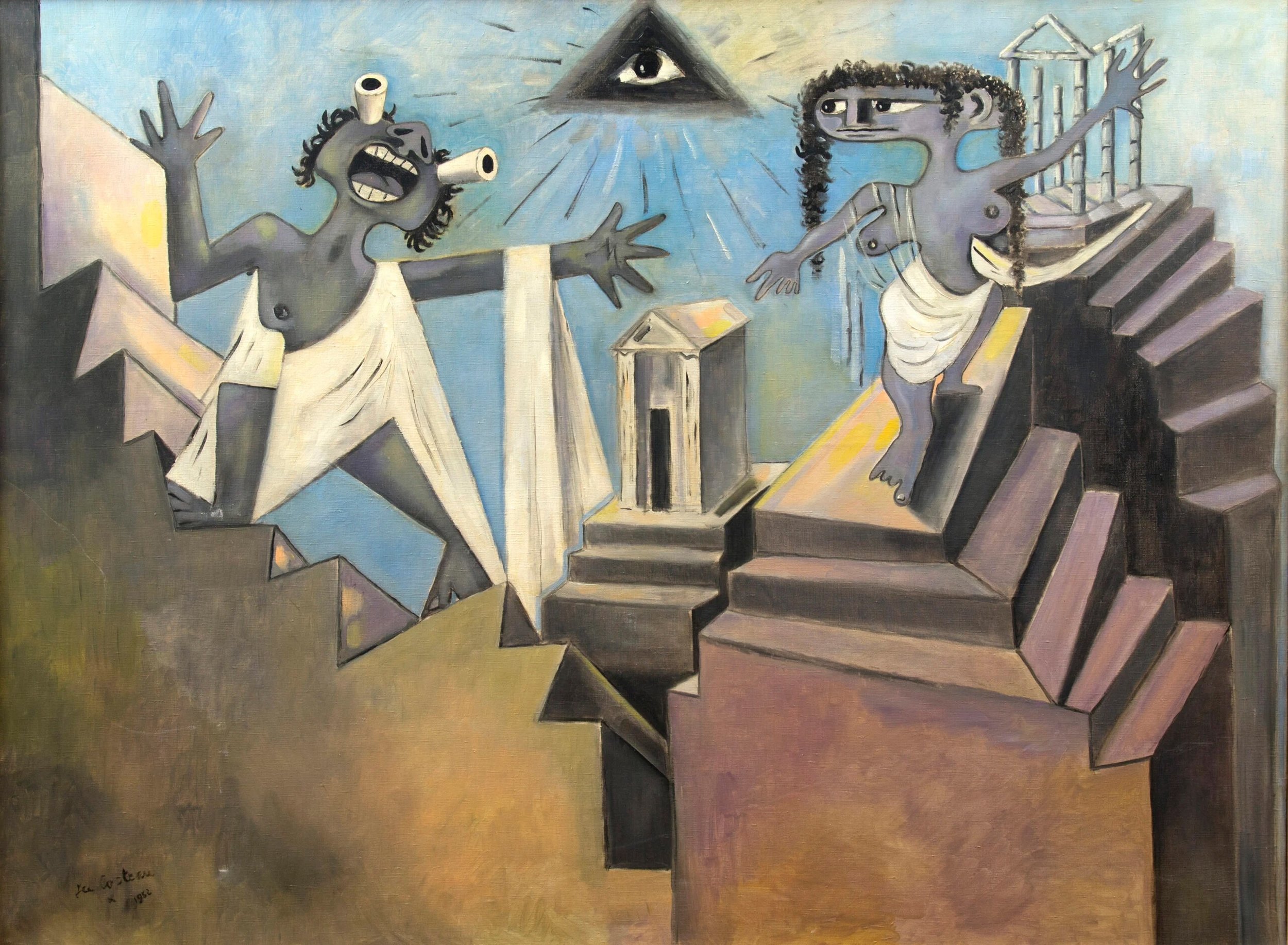
The Phantasm, between Desire and Jouissance — Alain Vanier
The phantasm responds to the question of the Other's desire, and thus the subject’s desire, by articulating subject and object, signifier and jouissance. It is a screen to the Real, and therefore crucially at stake at the end of the treatment, opening onto another mode of jouissance.

Freudian vs. Aristotelean Logic — André Michels
To determine the position of psychoanalysis in relation to modern science, it is crucial to return to the logic at stake in Freud’s invention, most clearly exposed in his writings on dreams, wit, and slips of the tongue. Lacan’s return to Freud continually examined psychoanalysis as a logical procedure undermining the principle of contradiction (or non-contradiction) expounded by Aristotle. Focusing on the signifier, the phantasm, and the Borromean knot, we will contrast psychoanalytic logic with the psychologism implicit in the social and political sciences that pervades almost all aspects of modern life.

Lacanian Marxism? The Impact of Marx on the Development of Lacan’s Thought—David Pavón-Cuéllar
Much has been written about Lacan’s Marx, about the way in which Lacan reads Marx, appropriates his ideas and reinvents them, transforming and Lacanizing them. What is not so clear is the impact of Marx on the development of Lacan’s thought and especially the way in which Lacan was Marxized, transformed and possessed by Marx, to the point of engendering a kind of Marxist who would certainly not be recognized as such by his followers.

Coming from Matter: On Artaud’s Recreation of the World — Raffaella Colombo
Ever since Deleuze and Guattari brought attention to it, Artaud’s concept of a “body without organs” (from his 1947 play To Have Done with the Judgment of God ) has been overused as a metaphor for individual and collective rebellion. Yet many other lessons remain in his “absolute materialism” and the painful, powerfully revolutionary conflict he waged with the pervasive presence of matter — from physical objects to the soul, thoughts, and even God.

The Name-of-the-Father and the Cause of Desire — Paula Hochman
The Name-of-the-Father articulates the structure that gives rise to the subject, formed by the Real, the Symbolic, and the Imaginary. According to Lacan, its function acquires respectability and authority by binding its name to a desire-causing object. We will examine the intrinsic relation between the law and desire.

The Siren Song of War — Betty Berardo Fuks
As global armed conflict seems once more imminent, we will examine from this perspective the articulation between psychoanalysis and politics. We will return to Freud’s thought on impending war, and consider how psychoanalysis can trace an ethico-political trajectory that dissipates violence and cruelty.

Observing the Voices — Daniel Heller-Roazen
In his dialogue On Divination, Cicero writes that the Pythagoreans cultivated the practice of “observing voices”: “not only the voices of the gods but also those of men, which they named ‘omens.’” Building on discussions at Après-Coup in 2022 and 2023, this presentation will explore the conditions in which sudden speech events have become objects of attention in ritual, literature, psychiatry, and psychoanalysis, yielding insights into omens, slips, and epiphanies.

Where Do the Unconscious and Politics Meet?—Gisèle Chaboudez
Lacan countered the long-disputed biologism of Freud’s “anatomy is destiny” with “the unconscious is politics.” Yet he never separated what the unconscious elaborates from real bodies, for instance of sexual organs in their copulation, with regard to their defective sexual jouissance. Noting that what is called the sexual relation, le rapport sexuel, precisely is not one, and that something else has been substituted in it, something he termed plus de jouir, we can surmise that it’s there that politics begins.
Dates to be announced
Psychoanalysis in the Institution — Ona Nierenberg
This clinical group will be oriented to the unique challenges and opportunities we encounter in hospitals, clinics, prisons, treatment programs, schools, and other institutions. We will explore the often surprising possibilities the analyst has to create and sustain space for the singular even in settings dominated by claims to the universal. Open to those currently working clinically in or with institutions.
All and Not-All (Part III)
Après-Coup Presentations. Date and time to be announced. Registration details to follow. This event will be free and open to the public.


